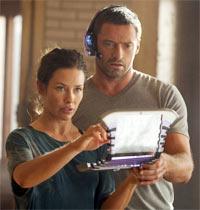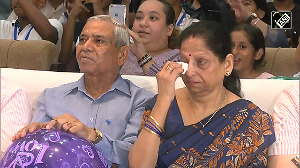 Shaikh Ayaz feels Real Steel has got its form right but content horribly wrong. Post YOUR reviews here!
Shaikh Ayaz feels Real Steel has got its form right but content horribly wrong. Post YOUR reviews here!For those of you raised on WWF and WWE, Real Steel could be a guaranteed return on your multiplex ticket. It's a good-looking film, with stunning visuals and slick production values. In that sense, it matches the star power of Hugh Jackman, banking considerably on his presence (and those of the robots) and presenting him as a down-on-luck boxer who turns the table by preparing an obsolete robot for the big fight.
The concept of Real Steel is not ground-breaking by any standards since we have seen the underdog narrative against the backdrop of sports before. Director Shawn Levy seems to be aware of that and uses an entertaining approach to drive us through a thrilling action ride. He sets his story at a time when the game of boxing is changing with robots replacing men. "But the crowd never changes," you are reminded. Dripping in debt, Charlie (Jackman) will do anything for money.
The least he would expect in such financially difficult times is his estranged son (Dakota Goyo as Max) whose custody is thrust upon him. However,
d="div_arti_inline_advt">










